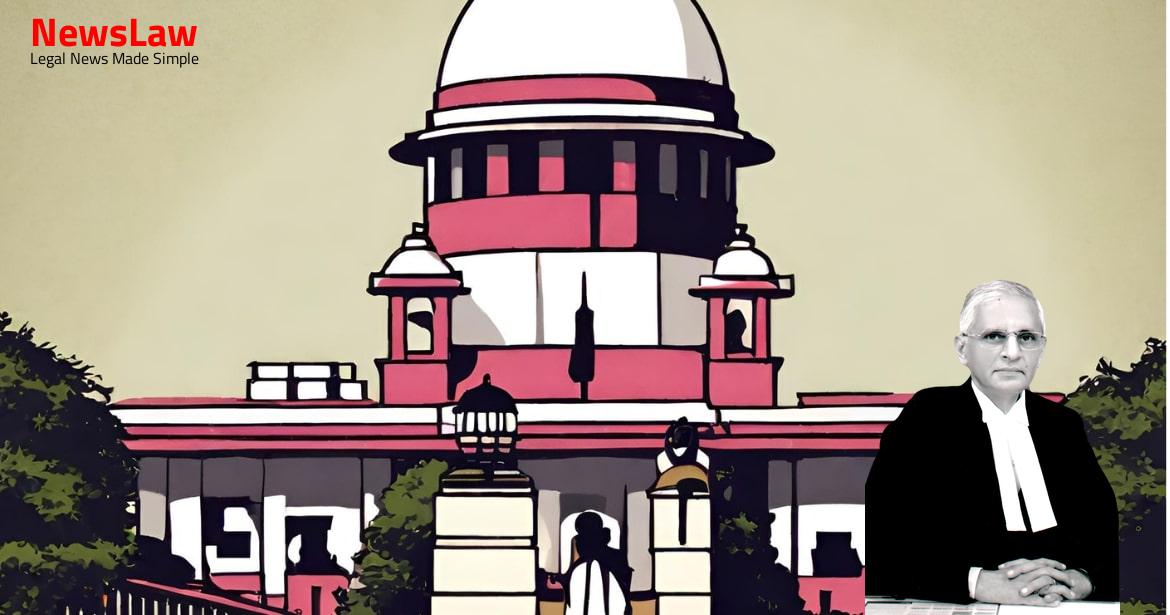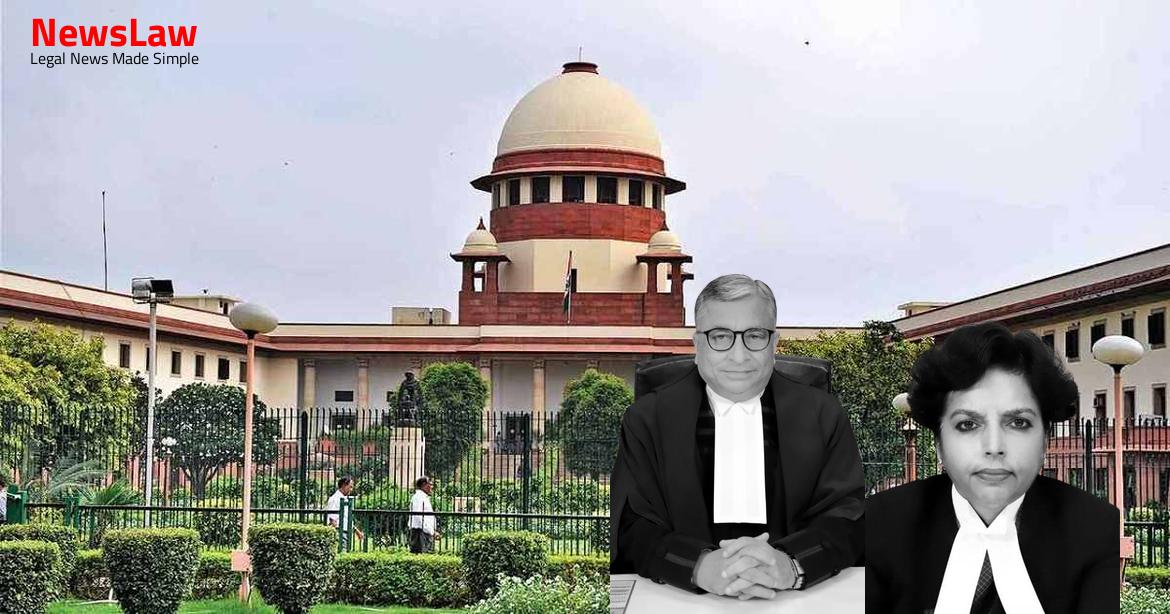In a recent legal case, the court scrutinized the jurisdictional bar imposed on civil courts regarding unauthorized constructions. The focus was on the interpretation of statutory provisions and the extent to which civil courts can provide reliefs in such cases. This summary delves into the nuances of the court’s legal analysis in navigating jurisdictional complexities.
Facts
- The appellant alleged that the first respondent made an unauthorized construction on an open vacant site, affecting her easements.
- The Civil Judge (Junior Division), Amravati held in favor of the appellant, stating that the unauthorized construction by the first respondent affected the appellant’s water supply and other rights.
- The first respondent’s actions, such as constructing a staircase to access the terrace and locking the service line for cleaning the septic tank, allegedly disturbed the appellant’s privacy and affected her property.
- The appellant sought reliefs in the suit including restoration of water supply, removal of the unauthorized construction, and protection of her legal rights.
- The District Court affirmed its jurisdiction to hear the suit due to the appellant’s individual rights being affected by unauthorized construction.
- The High Court ruled that civil courts cannot entertain suits when the Competent Authority has the power to take action on the cause of action.
- The District Judge found that the appellant, as the plaintiff, was impacted by encroachment on Authority premises.
- The High Court, citing Section 66(1)(a)(iv), noted the Competent Authority’s authority to evict individuals for unauthorized alterations.
Also Read: Balancing Power and Transparency: Electoral Bonds Struck Down, Disclosure Mandated
Analysis
- Section 66 empowers the competent authority to order eviction of a person in unauthorized occupation of authority premises.
- The Act aims to unify, consolidate, and amend laws related to housing, repairing, and reconstructing dangerous buildings in slum areas.
- No injunction or stay can be granted by a court in respect of actions taken under the Act.
- Grounds for eviction include destructive acts, unauthorized alterations, and contravention of occupancy terms.
- Competent authority can order eviction based on the specified grounds.
- Civil courts do not have jurisdiction over matters related to eviction, arrears of rent, or actions taken by the competent authority as per the Act.
- Section 177 bars civil court jurisdiction in matters determined by the Authority or Tribunal under the Act.
- Under Section 9 of CPC, the civil court has jurisdiction over civil suits unless barred by law.
- The competent authority can order eviction under Section 66.
- The unauthorized construction by the first respondent affected the light, air, and privacy of the appellant.
- The first respondent also shifted a water line and obstructed the drainage line.
- The suit did not seek eviction but requested removal of unauthorized construction and restoration of water connection.
- The reliefs sought by the appellant are beyond the scope of the Housing Act, which focuses on repairing and reconstructing buildings.
- In Ramesh Gobindram v. Sugra Humayun Mirza, a two-Judge Bench observed that civil courts have expansive jurisdiction in trying suits of a civil nature.
- The onus of proving the ouster of civil court jurisdiction lies with the party asserting it.
- Even when civil court jurisdiction is barred by a statute, the key test is whether the authority or tribunal under the statute can provide reliefs similar to those granted by civil courts.
- A suit of this nature is maintainable before the civil court and is not barred by Section 71 or Section 177 of the Act.
- The Single Judge of the High Court made an error in upholding the jurisdictional bar, and reversing the findings of the trial Judge and the first appellate court.
- The second appeal is restored to the file of the High Court for consideration on merits as the Single Judge’s ruling on absence of jurisdiction was found incorrect.
- The appeal is allowed, and the impugned judgment and order of the Single Judge of the Nagpur Bench of the High Court of Judicature at Bombay dated 11 December 2019 in Second Appeal No 111 of 2004 are set aside.
- Second Appeal No 111 of 2004 is restored to the file of the High Court for disposal on merits.
Also Read: Recall of Resolution Plan Approval: Legal Analysis
Decision
- Appeal pertains to the year 2004.
- High Court is requested to take up the appeal for admission quickly.
- Endeavor a disposal within three months from the date of producing the order.
- Any pending applications are disposed of.
Case Title: SAU RAJANI Vs. SAU SMITA (2022 INSC 805)
Case Number: C.A. No.-005216-005216 / 2022



